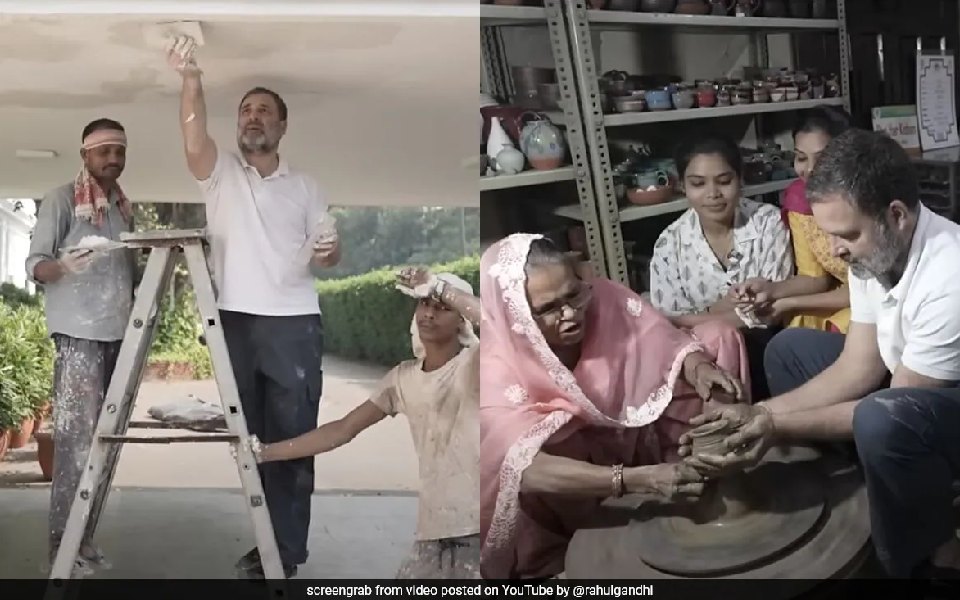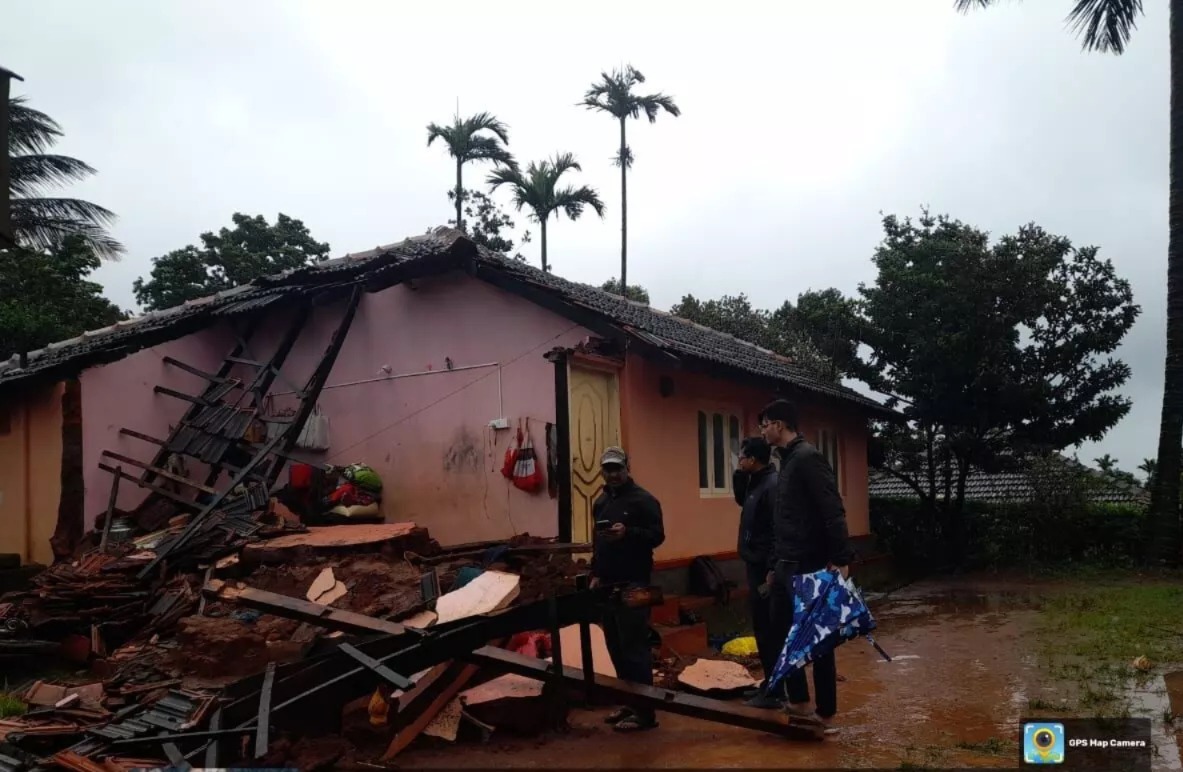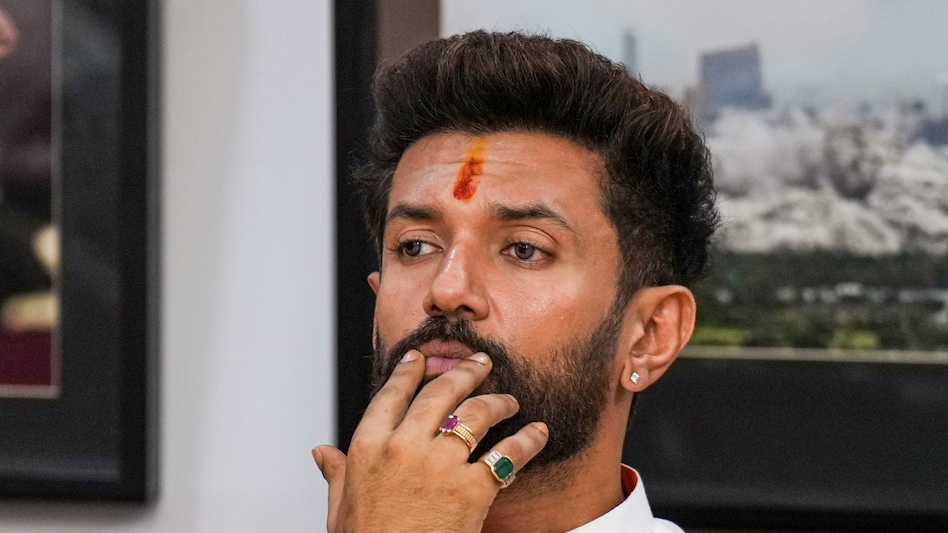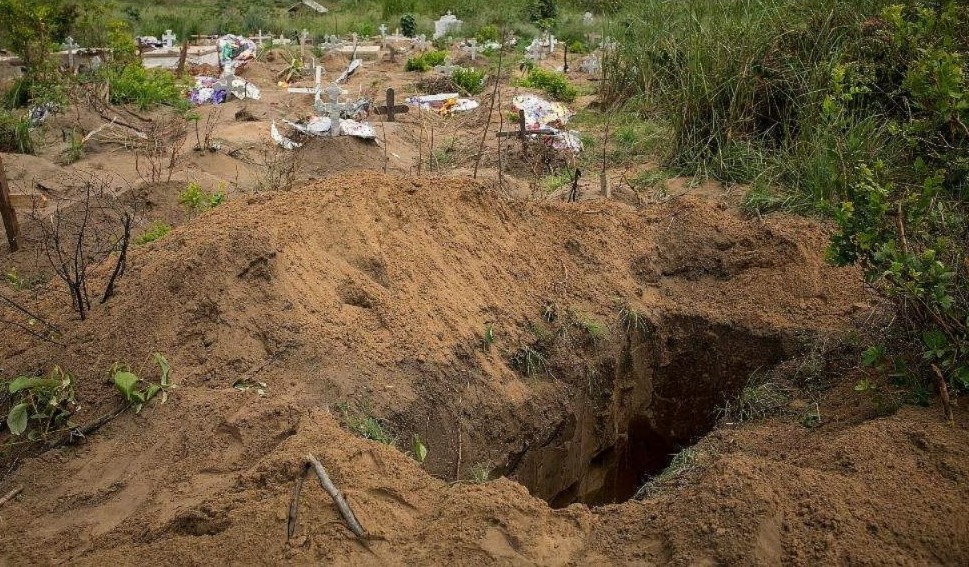New Delhi (PTI): Leader of Opposition in the Lok Sabha Rahul Gandhi Friday called for creating a system in which people's skills get their due and everyone's contribution is respected, as he shared a Diwali video in which he interacts with paint job workers and potters.
Posting the over nine-minute video which features him also having a conversation with his nephew Raihan Rajiv Vadra on YouTube, the former Congress chief said, "A memorable Diwali with special people - I celebrated this Diwali working with some painter brothers and making earthen diyas with a potter family."
"I saw their work closely, tried to learn their skills and understood their difficulties and problems. They don't go home. We celebrate festivals happily and to earn some money, they forget their village, city, family," Gandhi said.
"They make happiness from clay. While lighting up the festivals of others, are they able to live in light themselves? Those who build houses can hardly run their own houses!" he said.
Gandhi said Diwali means light that can remove the darkness of poverty and helplessness.
"We have to create such a system -- in which people's skills get their due and contribution is respected -- makes everyone's Diwali a happy one. I hope this Diwali brings prosperity, progress and love in the lives of all of you," he said.
In the video, Gandhi is seen working with labourers at the 10 Janpath residence and learning to paint walls along with his nephew. In the second part of the video, Gandhi goes to the house of a woman who makes earthen lamps with her five daughters.
Gandhi tries his hand at pottery and makes 'diyas', which he says he would give to his mother and sister.
Since his Kanyakumari to Kashmir Bharat Jodo Yatra and his Manipur to Mumbai Bharat Jodo Nyay Yatra, Gandhi has been interacting with a cross-section of people from mechanics and cobblers to labourers and bus drivers.
He often posts videos of his numerous interactions and highlights the plight of various sections of society.
Let the Truth be known. If you read VB and like VB, please be a VB Supporter and Help us deliver the Truth to one and all.
Madikeri: In an incident reported from Hanagallu village of Somwarpet taluk, a woman died after the wall of her house collapsed due to heavy showers on Friday night.
The deceased, Sushma, was the wife of Ravi, a native of Kalaburagi district and lived in a house owned by AN Sachin of Hanagallu with her three children and brother Akshay.
The wall of the house collapsed due to the heavy rains during Friday night. Sushma was trapped under debris and died. Akshay sustained a shoulder injury and was admitted to the Madikeri District Hospital.
Sushma's three children are learned to have sustained minor injuries.





